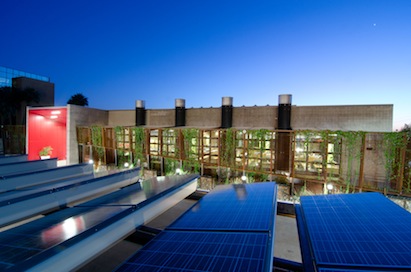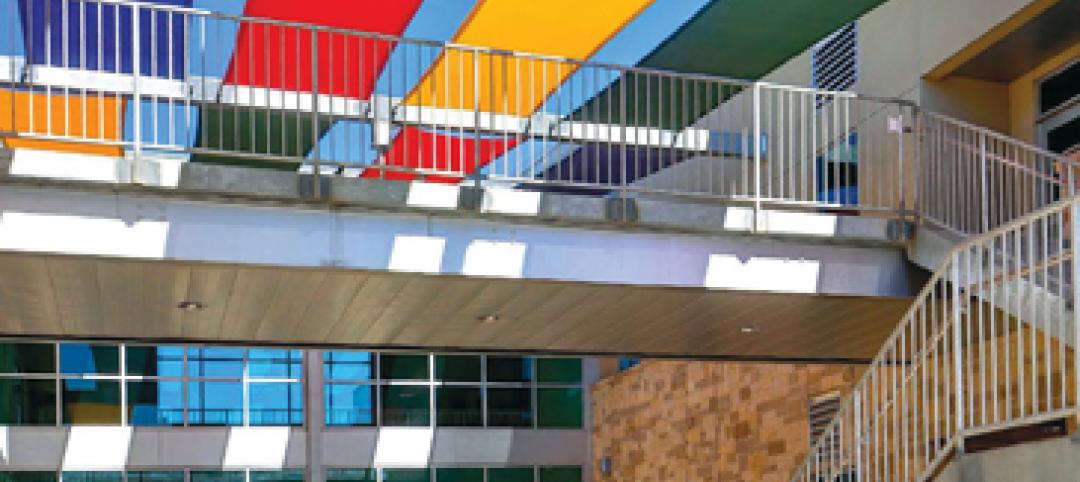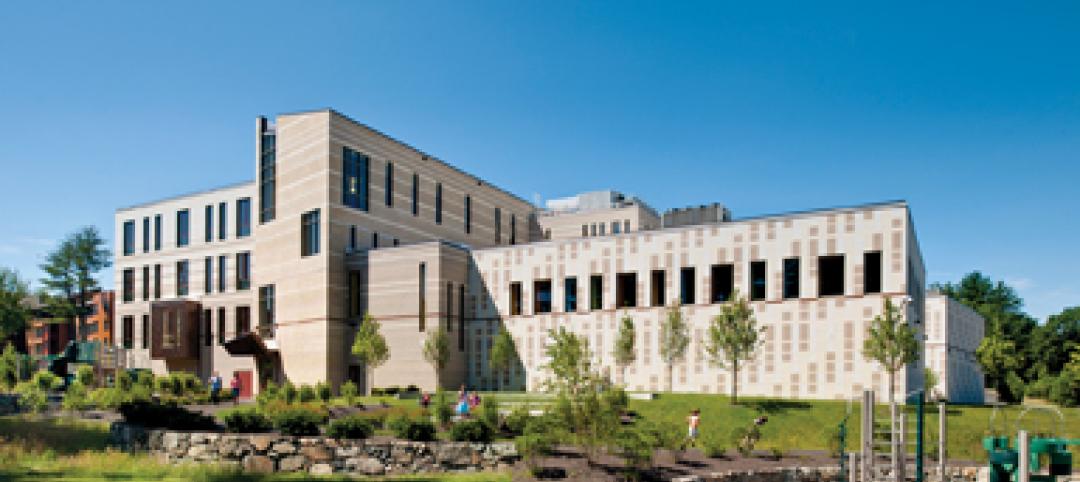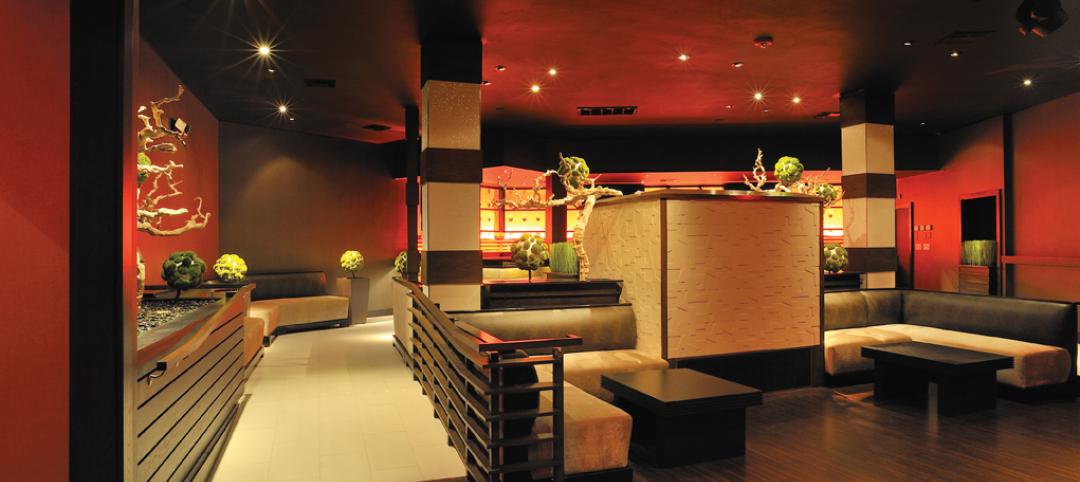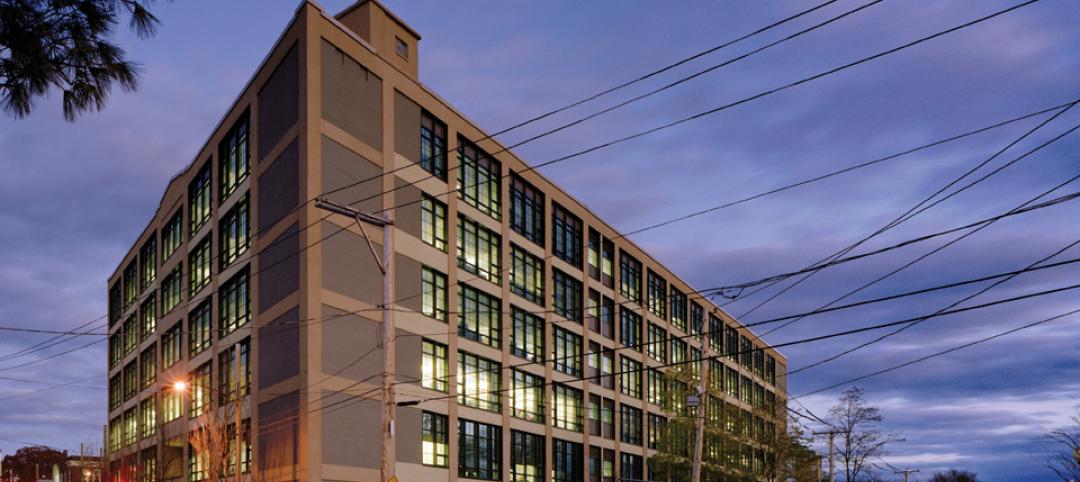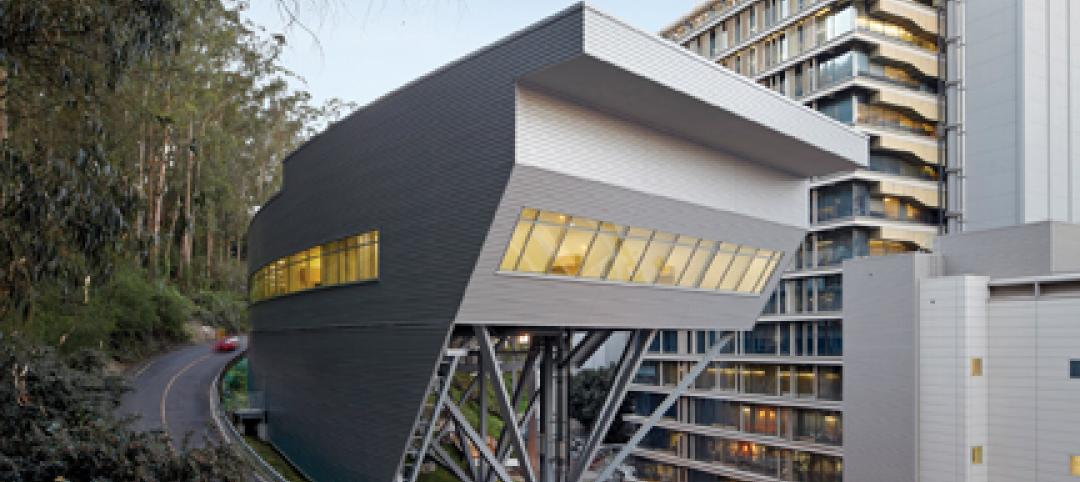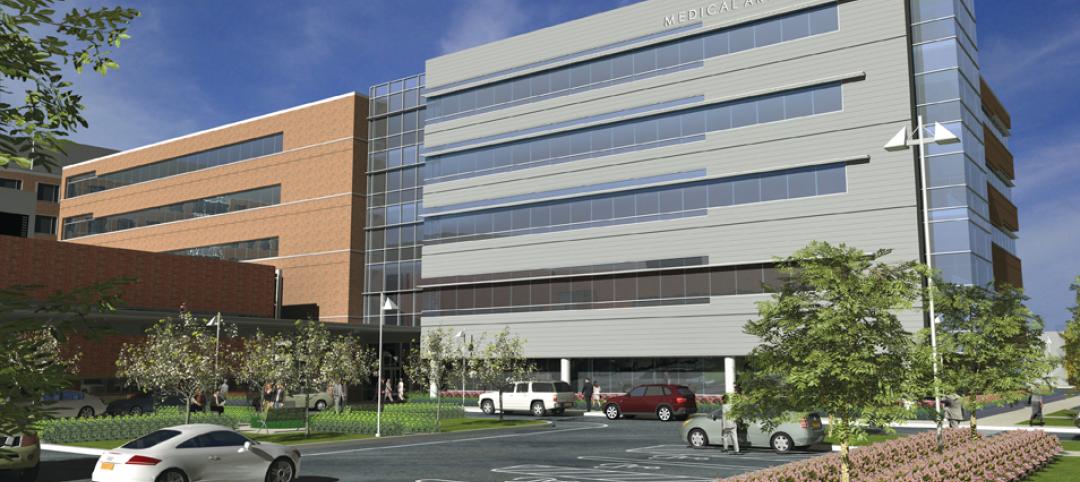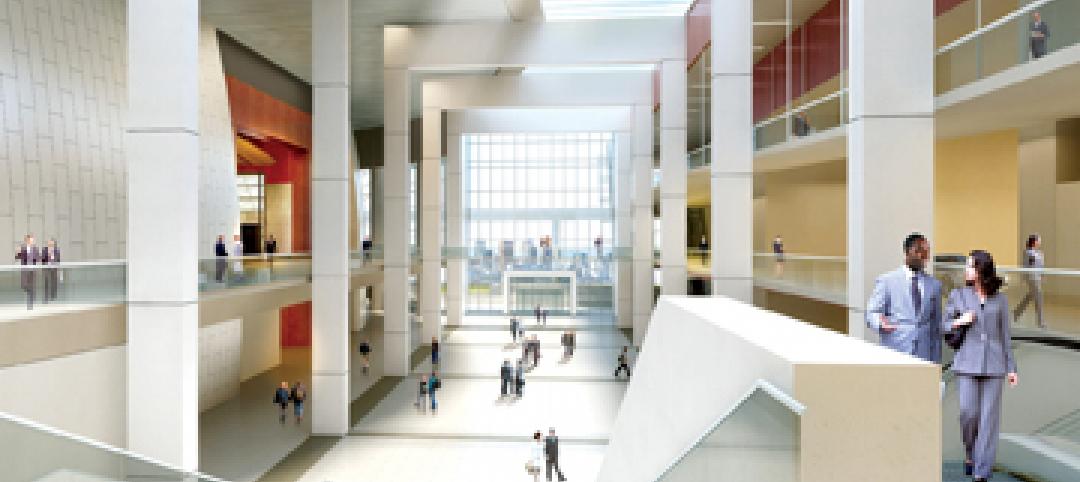Phoenix --The new Phoenix Regional Office of DPR Construction, designed by SmithGroupJJR, has been officially certified as a Net Zero Energy Building by the International Living Future Institute (ILFI). It’s the largest building in the world to achieve Net Zero Energy Building Certification through the Institute to date.
SmithGroupJJR designed the comprehensive renovation of the windowless, 1970s concrete block building, transitioning it into a model for sustainable adaptive reuse.
Located at the corner of 44th and Van Buren in a once declining area of Phoenix, the 16,533-square-foot storefront had most recently operated as an adult-themed boutique before standing vacant for three years. The eyesore building was purchased by DPR Construction, a national general contractor and construction manager, which was looking to build a highly-efficient, sustainable workplace and reaffirm its commitment to better the community in which it works.
Today, DPR’s new building is an ultra-energy efficient and modern workplace that’s embraced by its employees and the community.
“Many building owners may think it’s impossible to turn an aging, neglected building into something highly sustainable – especially in an extreme climate like Phoenix. But that’s precisely what we’ve achieved,” said Mark Roddy, AIA, LEED AP BD+C, SmithGroupJJR design principal. The entire project was completed in less than 10 months and is the first Net Zero Energy Building SmithGroupJJR has designed.
Net Zero Energy facilities integrate a combination of energy-producing technologies like solar and wind, and implement efficient HVAC and lighting systems to reduce a building’s overall energy usage. To achieve Net Zero Energy Building Certification, a facility must demonstrate a net energy consumption of zero over the span of one year.
SmithGroupJJR incorporated a range of advanced, sustainable design solutions to achieve Net Zero Energy consumption, such as:
— An 87-foot solar chimney enables a passive cooling system, releasing hot air out of the building while drawing cooler air in.
— Nearly 90 operable windows throughout the building work in tandem with the energy monitoring system to open and close based on indoor and outdoor temperatures.
— Eighty-two solar optical tubes, Solatubes harness light from rooftop domes and bring it into the workspace, nearly eliminating the need for artificial lighting.
— Twelve 8-foot diameter Big Ass Fans® circulate air flow throughout the office.
— A “vampire” switch cuts off 90 percent of plug loads, which would otherwise continue to draw power at night when the building is unoccupied.
— Four evaporative Shower Towers direct water-cooled air inside, also helping to regulate building temperatures.
— Producing power for the building is a 78.96 kW photovoltaic-covered canopy over half of the parking lot. The system is capable of generating enough power to offset the building’s annual energy usage and is critical to allowing the facility to achieve Net Zero energy consumption.
Tracking the building’s energy production and consumption in real time is an online building dashboard, prominently on display in the office’s reception area.
The new office building for DPR employees working in Phoenix is more than a sustainability powerhouse. Inside, SmithGroupJJR designed a “workplace of the future” environment, where employees share a common, open work environment void of enclosed, private offices. Unique, on-site amenities include a gym complete with men’s and women’s showers, a Zen Room for quiet breaks, and an 18-foot wine bar. A kitchen with café and two green-screened outside courtyards provide additional breakout venues. Video conferencing rooms, a learning lab, and a glass-walled Innovation Room with whiteboards and reconfigurable furniture encourage collaboration and teamwork. Rolling, glazed, garage-style doors can be raised to join the inside offices with an outside courtyard.
Since its completion in October 2011, the new DPR Phoenix Regional Office has become a living laboratory for the community, showcasing how to live and work sustainably in a desert environment. DPR has opened its building to host gatherings and meetings for a range of businesses and non-profit organizations. The company openly shares its building and the lessons that were learned during design and construction with audiences that include professional organizations, public and private programs, and school children of all ages.
DNV KEMA Energy and Sustainability served as sustainability consultant. Structural engineering was provided by PK Associates.
SmithGroupJJR (www.smithgroupjjr.com) is a recognized integrated design firm, ranked Top 10 in the U.S. by Architect, the magazine of the American Institute of Architects.A national leader in sustainabledesign, SmithGroupJJR has 351 LEED professionals and 88 LEED certified projects. SmithGroupJJR has four other buildings currently in design or under construction that aspire to be certified by the ILFI as Net Zero Energy Buildings.
Related Stories
| May 18, 2011
Eco-friendly San Antonio school combines history and sustainability
The 113,000-sf Rolling Meadows Elementary School in San Antonio is the Judson Independent School District’s first sustainable facility, with green features such as vented roofs for rainwater collection and regionally sourced materials.
| May 18, 2011
New Reform Jewish Independent school opens outside Boston
The Rashi School, one of only 17 Reform Jewish independent schools in North American and Israel, opened a new $30 million facility on a 166-acre campus shared with the Hebrew SeniorLife community on the Charles River in Dedham, Mass.
| May 18, 2011
Design diversity celebrated at Orange County club
The Orange County, Calif., firm NKDDI designed the 22,000-sf Luna Lounge & Nightclub in Pomona, Calif., to be a high-end multipurpose event space that can transition from restaurant to lounge to nightclub to music venue.
| May 18, 2011
Lab personnel find comfort in former Winchester gun factory
The former Winchester Repeating Arms Factory in New Haven, Conn., is the new home of PepsiCo’s Biology Innovation Research Laboratory.
| May 18, 2011
Addition provides new school for pre-K and special-needs kids outside Chicago
Perkins+Will, Chicago, designed the Early Learning Center, a $9 million, 37,000-sf addition to Barrington Middle School in Barrington, Ill., to create an easily accessible and safe learning environment for pre-kindergarten and special-needs students.
| May 18, 2011
Raphael Viñoly’s serpentine-shaped building snakes up San Francisco hillside
The hillside location for the Ray and Dagmar Dolby Regeneration Medicine building at the University of California, San Francisco, presented a challenge to the Building Team of Raphael Viñoly, SmithGroup, DPR Construction, and Forell/Elsesser Engineers. The 660-foot-long serpentine-shaped building sits on a structural framework 40 to 70 feet off the ground to accommodate the hillside’s steep 60-degree slope.
| May 18, 2011
New center provides home to medical specialties
Construction has begun on the 150,000-sf Medical Arts Pavilion at the University Medical Center in Princeton, N.J.
| May 18, 2011
Improvements add to Detroit convention center’s appeal
Interior and exterior renovations and updates will make the Detroit Cobo Center more appealing to conventioneers. A new 40,000-sf ballroom will take advantage of the center’s riverfront location, with views of the river and downtown.
| May 18, 2011
One of Delaware’s largest high schools seeks LEED for Schools designation
The $82 million, 280,000-sf Dover (Del.) High School will have capacity for 1,800 students and feature a 900-seat theater, a 2,500-seat gymnasium, and a 5,000-seat football stadium.


